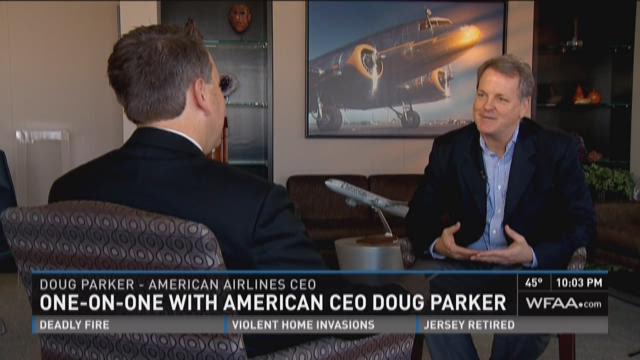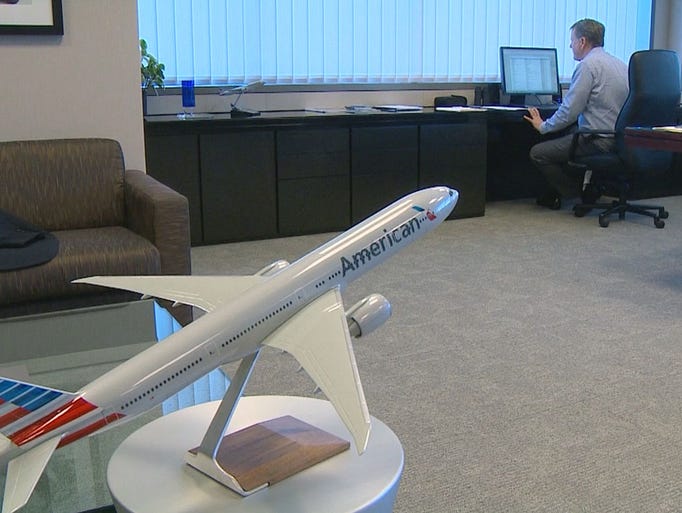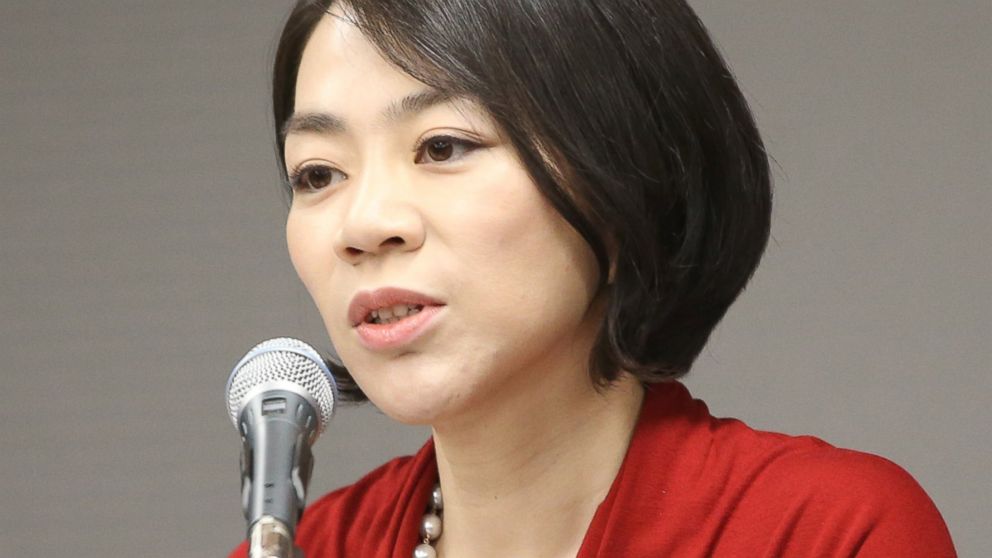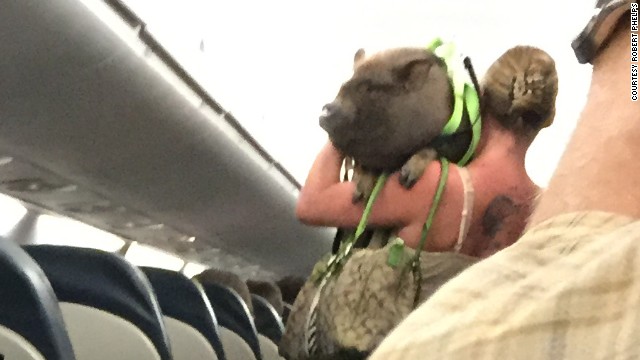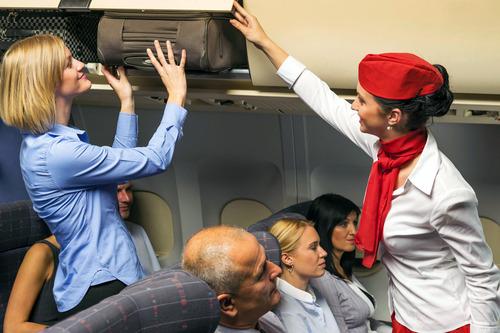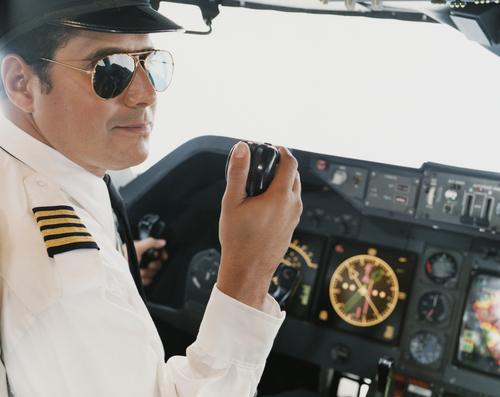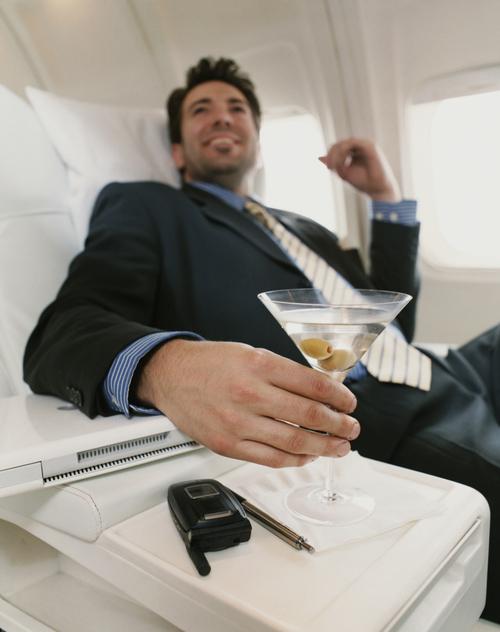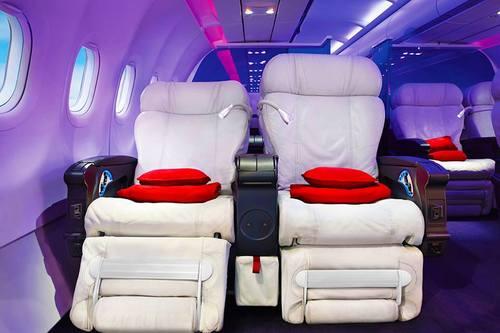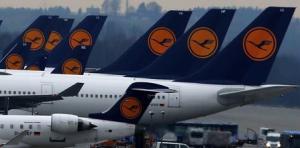Looking out at the crowd at a Fort Worth Chamber of Commerce breakfast last month, Doug Parker ticked off with satisfaction all the accomplishments achieved since American Airlines and US Airways merged last Dec. 9.
The two airlines have linked up their route networks. They’re sharing facilities at close to 100 airports. American began work on a new operations center. Dozens of new airplanes have arrived. Frequent fliers at one airline have been able to enjoy benefits in the other. His list went on and on.
“I’m excited to report that the future is now looking bright at American Airlines,” said Parker, chairman and chief executive officer of American Airlines Group Inc. “Our landmark merger less than a year ago created the world’s largest airline and built the foundation for building the greatest airline.”
But, as he has a number of times since he took over the airline, Parker had to add: There’s still a lot of work ahead.
Indeed, despite the fast start this year, 2015 will make or break this merger or, more accurately, tarnish its early success.
In particular, four projects have to go well to keep the merger’s progress flying along in the coming year:
First, the company has to satisfy the Federal Aviation Administration’s requirement to get a single operating certificate that will cover both American and US Airways. That should come in the first third of the year, if the current schedule holds.
Second, in the second quarter of 2015, American plans to combine the frequent-flier programs of the two carriers, AAdvantage at American and Dividend Miles at US Airways, into a single program.
Third, by the end of 2015, the company intends to combine the American and US Airways reservations system into a single system.
Fourth, American’s management and labor groups have to maneuver their ways to new joint contracts covering the separate American and US Airways employees without damaging their relationship too much.
Given what’s ahead, Parker in a recent interview acknowledged that it was “by no means” time to declare mission accomplished.
“Nothing close to it. ‘So far, so good’ is the right phrase. I don’t want to minimize that, ever, because the amount of work by the team required to get us to ‘so far, so good’ is enormous, and I feel really good about how well they’ve worked together and what they’ve accomplished,” Parker said.
“We all know it’s not done. But it gives us confidence that we’re on the right path to getting it all done in 2015.”
With huge profits already for the merged airline, American plans to announce this week that it is investing more than $2 billion in its airplanes and airports next year. That includes new interiors on several older fleets, including lie-flat seating on all its international airplanes that don’t already have that amenity; satellite-based Internet access on airplanes; and power plugs at the seats on most airplanes.
It also includes upgrading its Admirals Clubs at airports and remodeling check-in areas, including new kiosks that it says are more reliable.
Invisible task
Perhaps the most invisible of the four big tasks of 2015 will be obtaining a single operating certificate. When it is issued, the public won’t even notice.
But it has to be done before American and US Airways can begin functioning as a single airline.
Even with a single certificate, the date when US Airways disappears and only American remains is some distance in the future, and the old airplane paint jobs will remain for some time.
But for members of the two frequent-flier programs, the big change comes in the second quarter of next year when everyone will go into the AAdvantage program and the Dividend Miles program goes away.
For current AAdvantage members, the change will be irrelevant. They’ll keep their current frequent flier number. Dividend Miles members will be issued an AAdvantage number. It will be a little more complicated for people who are members of both programs.
American will ask travelers with dual memberships to “self identify” so that Dividend Miles points can be moved over to those members’ AAdvantage accounts.
AAdvantage president Suzanne Rubin said she’s confident that the switchover will go well. She’s also aware that it’s very important that American not get it wrong.
“The loyalty programs, the frequent-flier programs are one of the most personal touch points that our customers have with the airline,” she said. “It’s also one of the most important points of the integration for customers. It’s a sensitive issue.”
She noted another reason that the move to a single frequent-flier program is important: “I think that will further instill confidence in the overall integration process.”
Reservation system
If there’s one time when airline mergers get bad reputations, it’s that weekend that officials flip the switch, shut down one partner’s reservation system and put the entire burden on the other airline’s system.
Maya Leibman, American’s chief information officer who is heading the effort to get to that single reservation system, said it is difficult to overstate how important that system is.
“You can think of almost any function at an airline that involves a customer, and in some way it will touch the reservation system,” she said. That includes shopping for fares, buying a ticket, reserving a seat, getting the electronic ticket, boarding the flight and other functions.
“Whatever function, whatever business process you can think of related to the customer will most likely in some way tie back to the reservations system,” she said.
But while that’s the biggest technology task, it is by no means the only one.
At the time of the merger, American and US Airways each had about 700 systems, or 1,400 in all. By the time the integration is finished, Leibman would like to have the total down close to 700 again.
While the work has gone well so far, she said integrating the technology is tremendously challenging.
“Even though I had been doing technology before, this is unlike anything anyone has done, that anyone does in the normal course of technology,” Leibman said. “Mergers are big, hairy, complicated, emotional beasts. There’s definitely been a lot of ups and downs associated to that.”
Joint contracts
Front and center in the public’s attention right now are the battles over negotiations to put the two airlines’ labor groups under joint contracts rather than their separate American and US Airways contracts.
Flight attendants, represented by the Association of Professional Flight Attendants, on Nov. 9 turned down a joint contract by the narrowest of margins — 16 votes out of more than 16,000 cast. The matter has now been submitted to binding arbitration.
Meanwhile, American and the Allied Pilots Association have twice let deadlines pass to get a tentative agreement, and resumed negotiations last week on what might go into a joint contract covering both American and US Airways pilots. If they can’t reach agreement, that disagreement would also go to binding arbitration.
Other labor groups are waiting to see the outcome of the flight attendant and pilot contracts as they gear up for their own talks for joint contracts.
The labor talks might have gone easier for American Airlines Group if it hadn’t succeeded so spectacularly in its first year of operation.
The company reported the best first quarter profits in its history, the best second quarter, the best third quarter and expects to report the best fourth quarter when it releases 2014 results in late January.
Through Sept. 30, American has earned nearly $2.3 billion. By comparison, its best nine months before 2014 came in 1998 when it posted net income of $1.1 billion.
The consensus of investment analysts is that American will earn just over $1.1 billion in the fourth quarter, giving it $3.4 billion for the year. Compare that to its $17 billion in annual losses between 2001 and 2013, a stretch in which it lost money in all but two years.
The current consensus from analysts is that profits in 2015 will top those of 2014. They are expecting net income of $5.5 billion next year, excluding any special items and one-time charges.
And, with energy prices now plummeting, American’s profits will only go up.
Given the huge profits, employees have been pushing for profit sharing in their negotiations, even though the talks for joint contracts are limited by prior agreement and weren’t full contract negotiations.
On Wednesday, about three dozen flight attendants picketed in front of American’s headquarters, carrying signs like “Sharing is Caring.”
“We are here to let American Airlines management know that the tentative agreement that was rejected was not good enough,” Miami-based flight attendant Trice Johnson said. “And based on the unprecedented profits we’re seeing in the marketplace, we want our fair share.”
Parker acknowledged that he was surprised that flight attendants turned down their tentative agreement.
“We came into the merger with a lot of employee support for the merger, which has been great and carried us a long way and has been a huge part of us being to the point where we are so far and things going well thus far,” he said.
Both the union and management told flight attendants before the vote that they’d get $193 million in extra value in their contract if they approved the tentative agreement — much of it in pay — or $112 million if it went to binding arbitration. Therefore, Parker is somewhat puzzled by the results.
“What that says is either people didn’t believe that’s what they were voting on, which means we didn’t do a very good job of communicating, or they didn’t get the communication at all, neither of which is very good,” he said.
In summary, “I don’t think it’s a mistrust issue,” he said. “I think it’s just not working long enough together and having enough experience with each other to build that trust, and we’ll do that over the course of the next year.”
Follow Terry Maxon on Twitter at @tmaxon.
TIMELINE: Milestones since the merger
Dec. 9, 2013: American Airlines and US Airways merge to form American Airlines Group.
Jan. 7: American Airlines and US Airways begin standardizing their treatment of customers.
Jan. 13: The two airlines begin code-sharing, or putting their flight numbers on each other’s flights, to link up their two route networks.
Jan. 27: American picks Sabre for its reservation system post-merger.
Jan. 30: First US Airways airplane takes off in American’s colors.
March 31: US Airways becomes a member of the Oneworld global airline alliance led by American and British Airways.
April 3: US Airways joins American’s joint business alliance with British Airways, Iberia and Finnair.
July 7: American breaks ground on a new “integrated operations center,” which will consolidate existing AA and US Airways centers when completed in 2015.
July 23: American announces a multibillion-dollar “capital deployment program,” including its first dividend in 34 years, a stock buyback and early payment of debt.
Sept. 19: Association of Professional Flight Attendants and American negotiators reach a tentative agreement on a joint contract.
Sept. 25: American says it will launch flights from D/FW to Beijing in May 2015.
Oct. 20: The US Airways and American cargo divisions are combined.
Oct. 28: American announces it will combine US Airways’ Dividend Miles frequent-flier program into American’s AAdvantage program in second quarter 2015.
Nov. 9: Flight attendants reject their tentative agreement by 16 votes.
Terry Maxon
